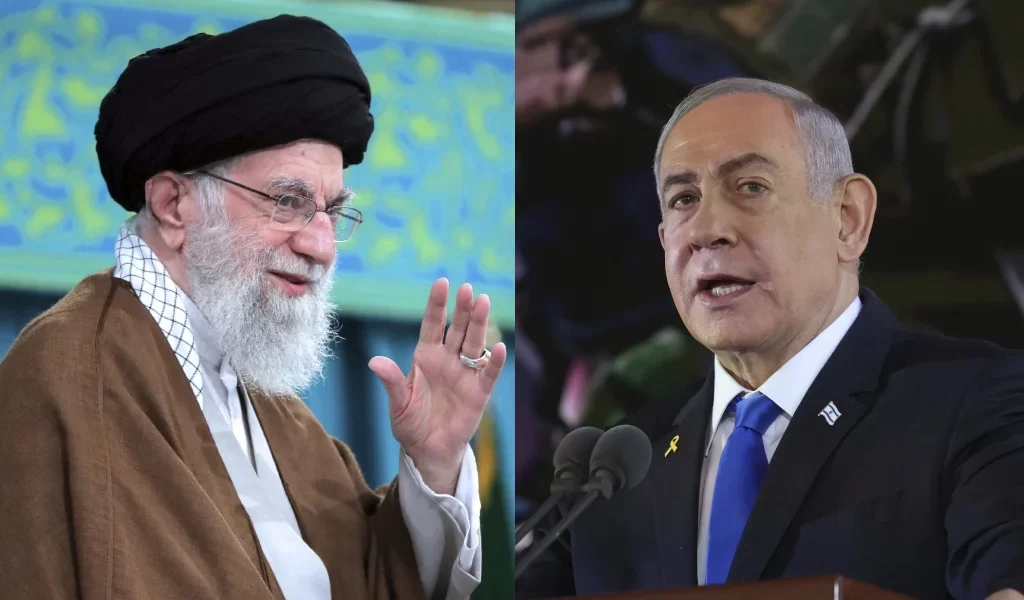The Israeli Forces struck at the heart of Iran’s nuclear, missile and military complex early Friday, in an unprecedented attack that reportedly killed three of Iran’s most powerful figures and plunges the wider Middle East into dangerous new territory.
The strikes on Iran’s nuclear program and senior military leaders could be a turning point in the long-running conflict, as Israel braced for a major Iranian retaliation – with the threat of a wider regional war breaking out now a real risk.
Later Friday morning, that retaliation appeared to be underway after Israel’s military said Iran had launched more than 100 drones toward Israel, and that Israel had begun “intercepting” them outside of its borders.
In a televised address to the nation, Israeli Prime Minister Benjamin Netanyahu said the military operation had “struck at the head of Iran’s nuclear weaponization program” and targets included Iran’s main enrichment facility in Natanz, Iranian nuclear scientists, and Iran’s ballistic missiles program.
“Moments ago, Israel launched operation Rising Lion, a targeted military operation to roll back the Iranian threat to Israel’s very survival,” Netanyahu said in a televised address.
“This operation will continue for as many days as it takes to remove this threat.”
Iran’s Supreme Leader Ayatollah Ali Khamenei warned that Israel will face “severe punishment” for the attacks, and confirmed that a number of Iranian commanders and scientists had been killed. Iran’s Armed Forces spokesperson said both the US and Israel would “pay dearly.”
One of Iran’s most powerful men, General Hossein Salami — the commander-in-chief of the country’s elite Islamic Revolutionary Guard Corps — was among those killed in the attacks, the IRGC confirmed. Major General Mohammad Bagheri, the chief of staff of Iran’s armed forces and the country’s highest-ranking military officer, was also killed, according to Iran’s state Media.
Iran’s former national security chief Ali Shamkhani, a key adviser to Khamenei who served as secretary of the National Security Council for almost a decade, was killed, IRINN reported. Also among the dead were six of Iran’s nuclear scientists, state affiliated Tasnim news agency said.
Friday’s strikes suggest Netanyahu saw a window of opportunity to meet Israel’s longstanding objective of obliterating Iran’s nuclear program. Iran is in its weakest military position in decades following crippling economic sanctions, previous Israeli strikes on its air defenses and decimation of its most powerful regional proxies, including Hezbollah.
A sixth round of nuclear talks between the US and Iran had been scheduled for Sunday, and US officials had previously revealed that Israeli strikes on Iran would be a brazen break with President Donald Trump’s approach on the Middle East.
The United States was not involved in the strikes, US Secretary of State Marco Rubio said, noting that Israel had “advised” the US that it believed the “action was necessary for its self-defense.” Earlier, Trump had warned of the possibility of “massive conflict” in the Middle East that could take place “soon.”
Several countries voiced alarm and condemnation at Israel’s strikes, with Saudi Arabia’s Foreign Ministry saying the attack undermines Iran’s “sovereignty and security and constitute a clear violation of international laws and norms,” and China’s embassy in Iran calling the situation “severe and complex.”
Residents in Iran faced a long and terrifying night. “People reported the ground shaking, hearing explosions, and jets flying overhead,” Negar Mortazavi, senior fellow at the Center for International Policy, told reporters.
Repeated explosions could be heard in the capital Tehran, and multiple videos showed flames and smoke billowing from buildings across the city. Iran’s airspace has also been closed, its civil aviation authority said.
Israel declared a state of special emergency, closing its airspace, shutting schools and banning social gatherings. “Tens of thousands” of Israeli soldiers were being called up in preparation for an Iranian retaliation, Israel’s military chief of staff said.
Analysts and experts have long warned that Israeli strikes on Iran’s nuclear capabilities could trigger a massive Iranian retaliation and threaten to tip the region into a full-scale war.
And if Israel and Iran become entangled in wider conflict, it could risk drawing in the United States into the fray. The US is Israel’s closest ally and biggest weapons supplier, and there are currently about 40,000 US troops across the Middle East, including nearly 4,000 in Iraq and Syria.
Indications of that risk emerged earlier this week as the US ordered the departure of non-essential personnel from locations around the Middle East as intelligence warnings increased that an Israeli strike on Iran was imminent.
Netanyahu has repeatedly pushed for a military option to stop Iran’s nuclear program, and recent US intelligence reports said that Israel was seeking to capitalize on the destruction inflicted after it bombed Iran’s missile production facilities and air defenses in October.





